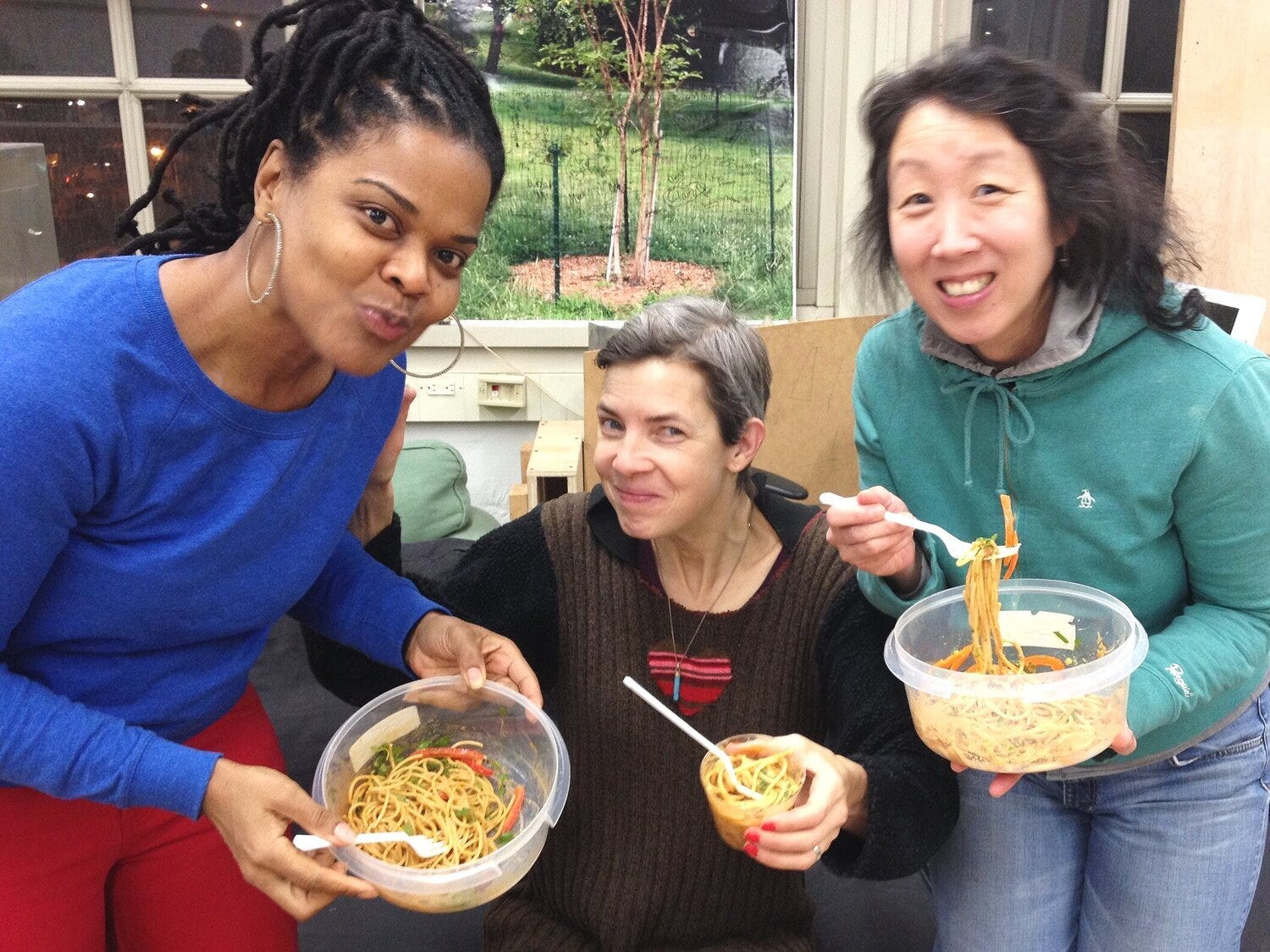Suburbia’s Tasteless PTA Potluck
Let’s workshop this poem about how the self-absorption of yet another "I want it now" trans bully mirrors the opportunistic theatrics of its mother, proving the apple does not fall far from the tree
scent of the day: Pipe, by TSVGA.—A Christmas tobacco fragrance that blends smoky and animalic (tobacco, leather, patchouli, agarwood, ambergris, civet, castoreum, muskrat, hyrax, deer musk) with floral and gourmand (osmanthus, immortelle, jasmine, marigold, rose, cocao, vanilla, benzoin, coffee, almonds, whiskey, propolis), Pipe—a follow up to TSVGA’s more rugged “A Man and His Pipe” and preamble to King of Pipe—highlights a bitter pipe tobacco that (however moist it comes off in the beginning, where at times it almost seems fresh from harvest) grows in muskiness until we find ourselves (as if homunculi) inside a cigar box (stale and dusty as a cedarwood-cobweb attic straight out of a Neverending Story)—a cigar box we might imagine inside a breakfast eatery during the Christmas holidays filled not only with warm culinary aspects (vanilla-glazed cinnamon buns, rustic cinnamon brooms along the wall, whiskey-shot coffee, pancakes covered in apricot-compote syrup from the osmanthus-immortelle-propolis trifecta) but also with gentle-giant Brawny Paper Towel men who in this case (unlike their anchor-tattooed hipster playactors out of Portland) actually walk the walk when it comes to gutting deer.
Suburbia’s Tasteless PTA Potluck Is it any riddle where the brat’s Veruca Salt egomania (“I’m not a boy!”) has come from when its mom cites, as the best gift of having a trans kid, how it has added “seasonin’” to her “bleachy-white life” and given her “street cred in unprivileged communities”?









“Suburbia’s Tasteless PTA Potluck” is a terse and stinging critique of a particular strain of performative allyship within contemporary liberal culture—specifically the phenomenon of parents who derive a sense of personal cachet from having a transgender child. The poem’s imagery and tonal choices suggest a corrosive satire, one aimed at the commodification of identity politics in affluent, culturally insulated enclaves. At only nine lines, the poem reads with the sharpened brevity of a satirical epigram, exposing how symbolic capital, particularly around race and gender, is cynically leveraged for social clout.
The poem’s first tercet centers on a child whose insistence on gender identity (“I’m not a boy!”) is presented not through the lens of their own struggle but through a characterization dripping with contempt: “Veruca Salt egomania.” The allusion to Veruca Salt—the spoiled, petulant character from Charlie and the Chocolate Factory—instantly frames the child as emblematic of unchecked entitlement, echoing a growing cultural suspicion that youth identity declarations are increasingly encouraged, not challenged, by a parental generation eager for progressive credibility.
But the sharper critique, and the true object of the poem’s ire, lies in the subsequent stanzas—namely the mother, who is said to cite her child’s transgender identity not for reasons of parental love or advocacy but for how it “added ‘seasonin’’” to her “‘bleachy-white life.’” Here, the tone slides into biting caricature: the affectation of African-American Vernacular English in the word “seasonin’” implicates the speaker in a mockery of cultural appropriation, suggesting the mother’s eagerness to don “unprivileged” identities as fashionable accessories. The use of “bleachy-white” conjures both the sterility and the cluelessness of affluent suburban whiteness—a cultural monoculture now seeking its own edgy redemption via proxy victimhood.
What’s more, the phrase “street cred / in unprivileged communities” distills the poem’s central accusation: that the child’s identity has become a kind of social seasoning, a garnish to spice up an otherwise bland cultural existence. The crassness of this transactional framing mirrors the very title’s metaphor: a “tasteless PTA potluck,” in which the supposedly diverse offerings of identity and experience are reduced to bland, self-congratulatory kitsch. “Potluck” here does double duty: first as the suburban community ritual often associated with inoffensive socialization, and second as an ironic nod to how identity categories are treated as optional dishes brought for the aesthetic enjoyment of the white liberal elite.
The poem, then, does not satirize transgender identity itself, but rather the instrumentalization of such identity by parents (especially white, affluent mothers) whose desire for moral capital and progressive social currency exceeds their interest in the deeper ethical or emotional realities of the identities they claim to champion. The poem invites discomfort precisely because it operates at the razor’s edge of cultural critique, implicating both the commodifying liberal parent and the social structures that reward such commodification. In this sense, it joins a growing chorus of literary works interrogating how even social justice discourse can become a vehicle for self-serving egoism.